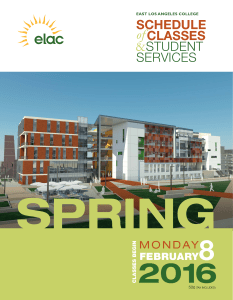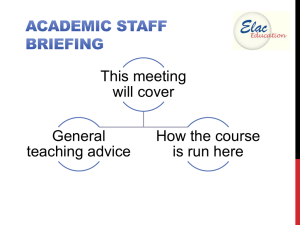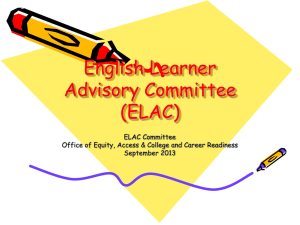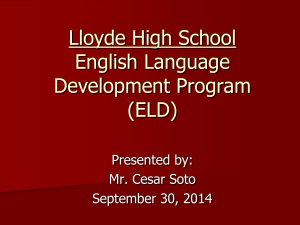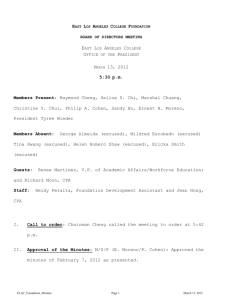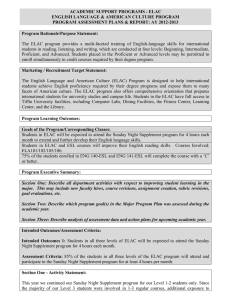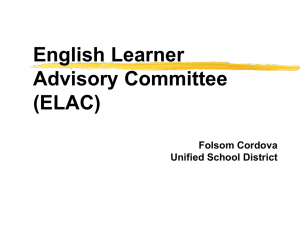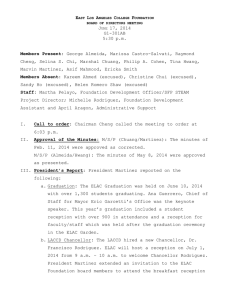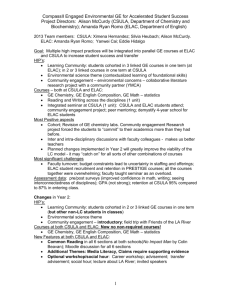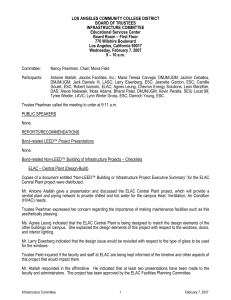Report - Tiffin University
advertisement
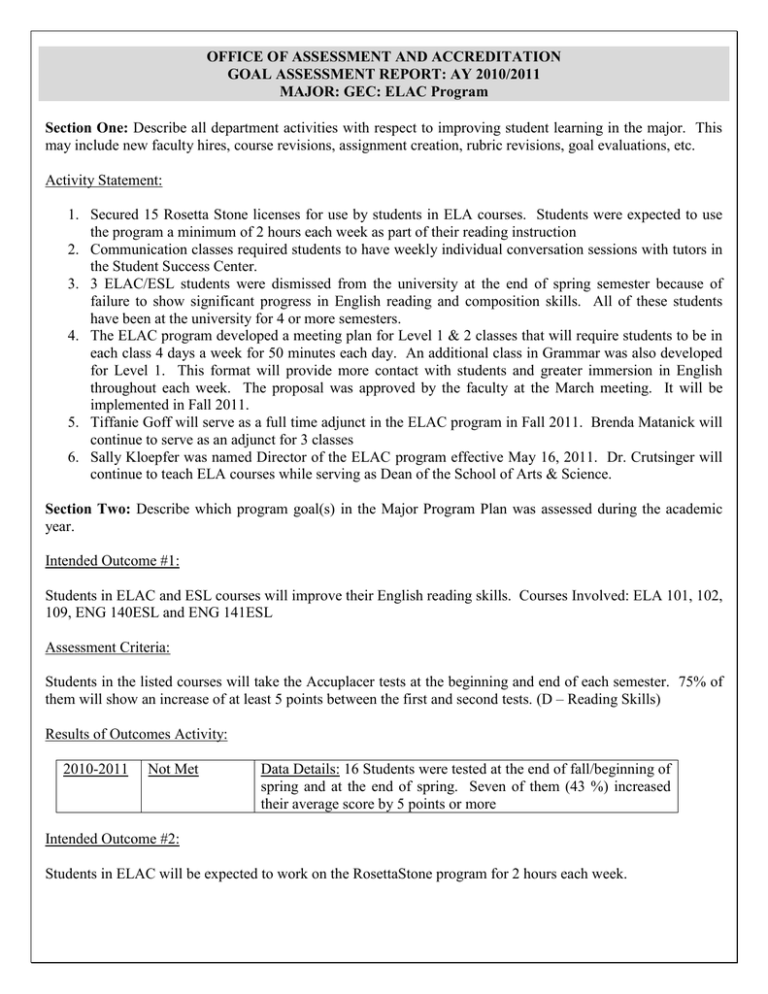
OFFICE OF ASSESSMENT AND ACCREDITATION GOAL ASSESSMENT REPORT: AY 2010/2011 MAJOR: GEC: ELAC Program Section One: Describe all department activities with respect to improving student learning in the major. This may include new faculty hires, course revisions, assignment creation, rubric revisions, goal evaluations, etc. Activity Statement: 1. Secured 15 Rosetta Stone licenses for use by students in ELA courses. Students were expected to use the program a minimum of 2 hours each week as part of their reading instruction 2. Communication classes required students to have weekly individual conversation sessions with tutors in the Student Success Center. 3. 3 ELAC/ESL students were dismissed from the university at the end of spring semester because of failure to show significant progress in English reading and composition skills. All of these students have been at the university for 4 or more semesters. 4. The ELAC program developed a meeting plan for Level 1 & 2 classes that will require students to be in each class 4 days a week for 50 minutes each day. An additional class in Grammar was also developed for Level 1. This format will provide more contact with students and greater immersion in English throughout each week. The proposal was approved by the faculty at the March meeting. It will be implemented in Fall 2011. 5. Tiffanie Goff will serve as a full time adjunct in the ELAC program in Fall 2011. Brenda Matanick will continue to serve as an adjunct for 3 classes 6. Sally Kloepfer was named Director of the ELAC program effective May 16, 2011. Dr. Crutsinger will continue to teach ELA courses while serving as Dean of the School of Arts & Science. Section Two: Describe which program goal(s) in the Major Program Plan was assessed during the academic year. Intended Outcome #1: Students in ELAC and ESL courses will improve their English reading skills. Courses Involved: ELA 101, 102, 109, ENG 140ESL and ENG 141ESL Assessment Criteria: Students in the listed courses will take the Accuplacer tests at the beginning and end of each semester. 75% of them will show an increase of at least 5 points between the first and second tests. (D – Reading Skills) Results of Outcomes Activity: 2010-2011 Not Met Data Details: 16 Students were tested at the end of fall/beginning of spring and at the end of spring. Seven of them (43 %) increased their average score by 5 points or more Intended Outcome #2: Students in ELAC will be expected to work on the RosettaStone program for 2 hours each week. Assessment Criteria: 80% of the students assigned to use the RosettaStone program during Spring 2011 will complete the requirement. (D – Speaking Abilities) Results of Outcomes Activity: 2010-2011 Not Met Data Details: Twelve students were assigned to use the program 2 hours each week. Two of those students, 17%, met the requirement. Intended Outcome #3: 75% of the students enrolled in ENG 141-ESL will complete the course with a ‘C’ or better on their first attempt. Assessment Criteria: Determine the number of first-time students enrolled in the ESL section of ENG 141 in fall and spring semesters. Establish the number of those students who earn a ‘C’ or better on their first attempt at the course. (D – Writing Abilities) Results of Outcomes Activity: 2010-2011 Not Met Data Details: A total of 14 students were enrolled for the first time. Nine students (64%) earned a ‘C’ or better on the first attempt. Section Three: Describe analysis of assessment data and action plans for upcoming academic year. Analysis and Action Plans: The use of RosettaStone contributes significantly to the ability of those students who use it for 2 hours or more each week; however, the large majority of students do not use the program. The university should not continue to cover the cost of the licenses for students. Generally students in the ELAC program are making slow progress in English skills. This progress should happen more quickly. Action Plans: 1. Develop a limit on attempts at significant ELA and English courses. a. Students should have 2 semesters to complete Level 1 courses and achieve an 80+ average on the Accuplacer Battery. b. Students should be allowed 2 attempts to pass ENG 140 and 141 2. Carefully monitor the progress of students in the new 4-day schedule 3. Require consistent conversation assignments with native speakers
